Learn how household cleaning products can harm your indoor air quality and what you can do to minimize their impact.
As a child, I remember my mother always keeping our home spotless. She would spend hours scrubbing every inch of the house with various cleaning products, leaving a fresh scent in the air.
It wasn’t until years later that I realized the potential impact those products had on our indoor air quality.
As an expert blogger who writes about home air quality, I’ve researched extensively on how household cleaning products can affect our health and well-being. From harsh chemicals to synthetic fragrances, these products can release harmful pollutants into the air we breathe.
In this article, I’ll dive deeper into the impact of household cleaning products on indoor air quality and provide tips on how to maintain a clean home while minimizing exposure to harmful pollutants. So grab a cup of tea and let’s explore this topic together!
The Invisible Fumes
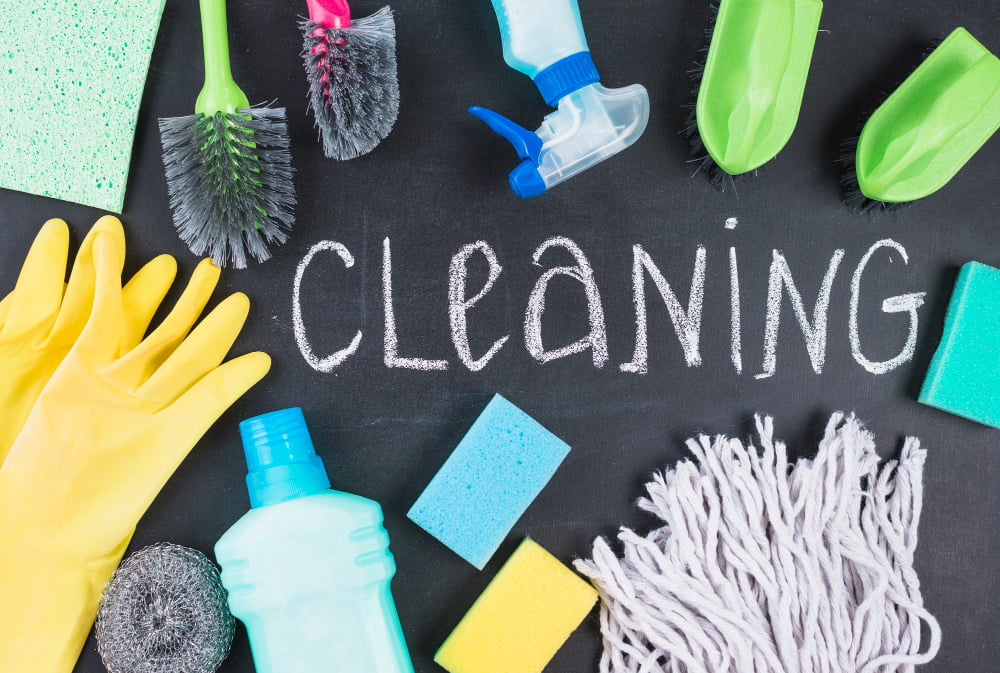
As I delved deeper into the world of indoor air quality, I discovered that many household cleaning products contain volatile organic compounds (VOCs). These are chemicals that can easily evaporate at room temperature and release invisible fumes into the air.
The problem with VOCs is that they can cause a range of health issues such as headaches, dizziness, respiratory problems and even cancer in some cases. The worst part? We often don’t realize we’re breathing them in until it’s too late.
As someone who grew up around these products without knowing their potential impact on my health, this realization was alarming. It made me wonder how many others were unknowingly exposing themselves to harmful pollutants every day.
In the next section of this article, we’ll explore some common household cleaning products containing VOCs and what you can do to minimize your exposure to them while still keeping your home clean.
Chemical Culprits
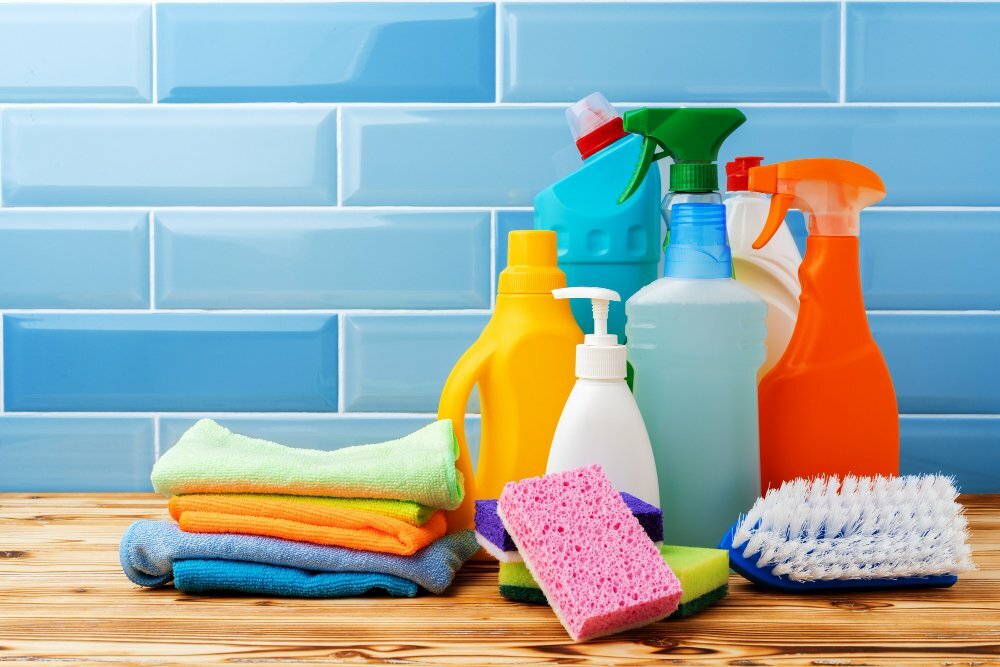
Many household cleaning products contain chemicals that can be harmful to our health. These chemicals are often used as preservatives, solvents, and surfactants in cleaning products.
Some of the most common chemical culprits found in household cleaners include ammonia, bleach, phthalates, and volatile organic compounds (VOCs).
As I delved deeper into my research on indoor air quality and the impact of these chemicals on our health, I realized just how important it is to pay attention to what we use in our homes. The harsh fumes from these cleaning agents can cause respiratory problems such as asthma or aggravate existing conditions.
It’s essential to read labels carefully when purchasing any household cleaner product. Look for natural alternatives that don’t contain synthetic fragrances or harsh chemicals like sodium lauryl sulfate (SLS) or triclosan.
While keeping a clean home is crucial for maintaining good hygiene standards; it’s equally important not to compromise your family’s health by using toxic substances that pollute indoor air quality.
By choosing safer alternatives like vinegar-based solutions or plant-based cleaners with no added fragrances – you’ll be doing your part towards creating a healthier living environment for everyone at home!
Allergy Aggravators
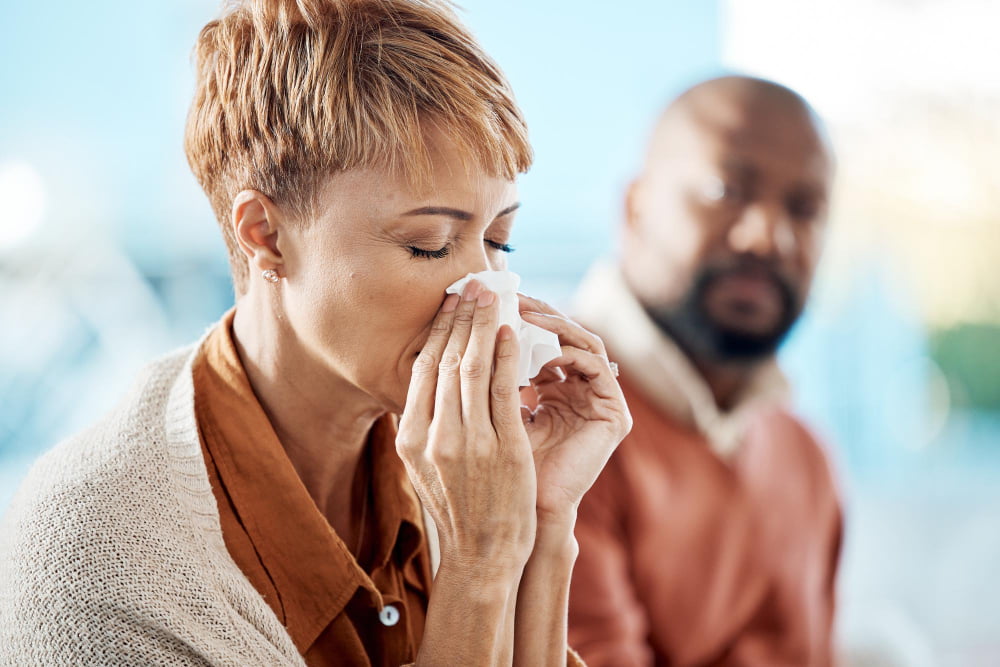
As I delved deeper into the research on household cleaning products, I discovered that many of them contain ingredients that can aggravate allergies. These allergens can cause symptoms such as sneezing, coughing, and itchy eyes.
For those with asthma or other respiratory conditions, exposure to these allergens can be particularly dangerous.
One common ingredient found in many cleaning products is fragrance. Synthetic fragrances are often made up of a mixture of chemicals and have been linked to allergic reactions in some people.
Certain preservatives used in cleaning products like formaldehyde and benzalkonium chloride have also been known to trigger allergies.
It’s important for consumers to read labels carefully when purchasing household cleaners and opt for fragrance-free or hypoallergenic options whenever possible.
By doing so, we not only protect our indoor air quality but also safeguard our health from potential allergy triggers lurking within our homes’ walls!
Asthma Attackers

As I delved deeper into the research on household cleaning products, I discovered that some of these products can trigger asthma attacks. According to the American Lung Association, many cleaning supplies contain volatile organic compounds (VOCs) and other chemicals that can irritate airways and worsen asthma symptoms.
I couldn’t help but think back to my childhood home where my mother would use a variety of harsh cleaners without proper ventilation. It’s possible that those same cleaners could have contributed to respiratory issues for me or any family members with pre-existing conditions like asthma.
It’s important for everyone, especially those with respiratory issues, to be aware of what they’re using in their homes when it comes to cleaning supplies. Opting for natural alternatives or making your own DIY cleaners is one way you can reduce exposure to harmful pollutants while still maintaining a clean living space.
Green Alternatives
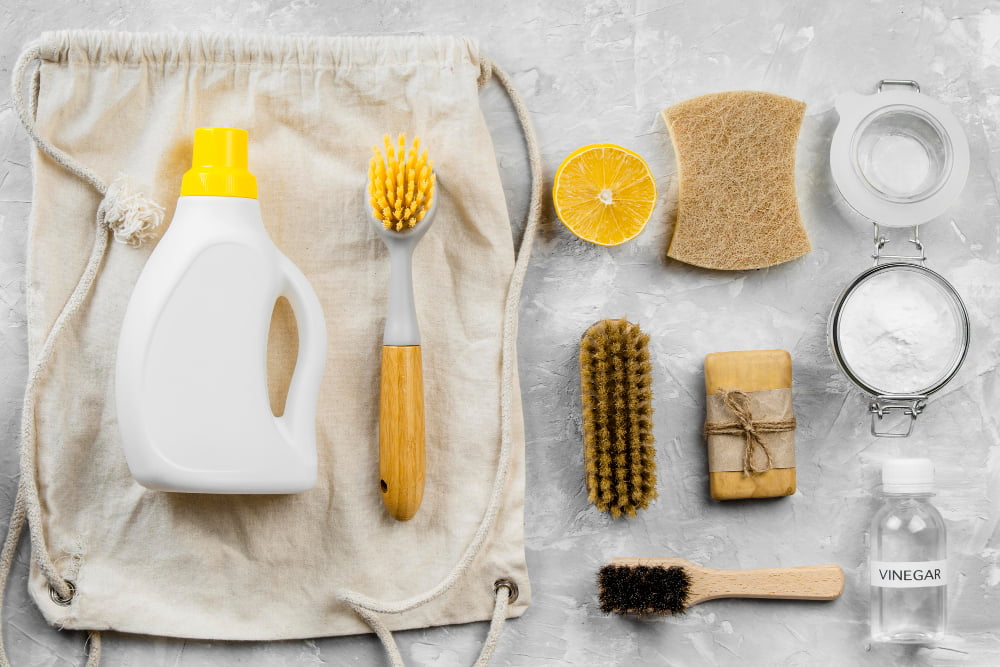
As I delved deeper into the world of indoor air quality, I discovered that there are many green alternatives to traditional household cleaning products. These alternatives use natural ingredients and avoid harsh chemicals, making them safer for both our health and the environment.
One such alternative is vinegar. It’s a versatile cleaner that can be used on almost any surface in your home.
Mix equal parts water and vinegar in a spray bottle, and you have an effective all-purpose cleaner.
Another option is baking soda. It’s great for removing tough stains or odors from carpets or upholstery.
Simply sprinkle it on the affected area, let it sit for 15-20 minutes, then vacuum it up.
Essential oils are also becoming increasingly popular as natural cleaners due to their antibacterial properties and pleasant scents. Tea tree oil is particularly effective at killing germs while leaving behind a fresh scent.
By switching to these green alternatives, we can reduce our exposure to harmful pollutants while still maintaining a clean home – just like my mother did all those years ago but with healthier options!
DIY Clean Solutions
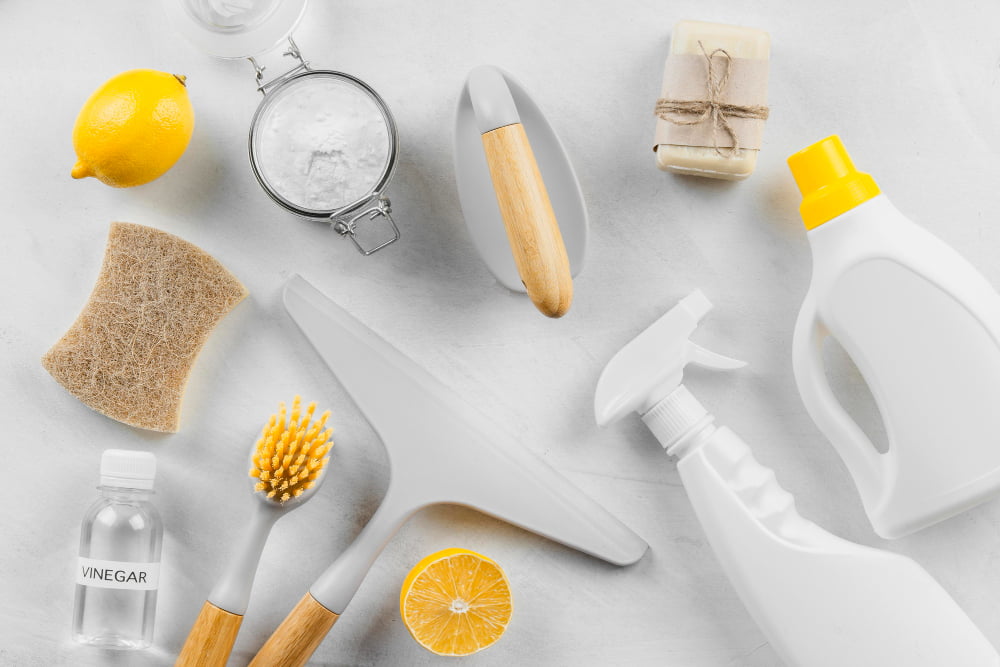
While it’s important to keep our homes clean, we also need to be mindful of the products we use. Fortunately, there are many DIY cleaning solutions that can help maintain a clean home without compromising indoor air quality.
As I delved deeper into researching this topic, I discovered that many common household items such as vinegar and baking soda can be used for effective cleaning. For example, mixing equal parts water and vinegar in a spray bottle makes an excellent all-purpose cleaner for surfaces like countertops and floors.
Another great alternative is using baking soda as a natural deodorizer. Sprinkling some on carpets before vacuuming or adding it to laundry detergent can help eliminate odors without releasing harmful chemicals into the air.
By opting for these simple DIY solutions instead of harsh chemical cleaners, not only are you reducing your exposure to pollutants but also saving money in the long run!
Ventilation Victory
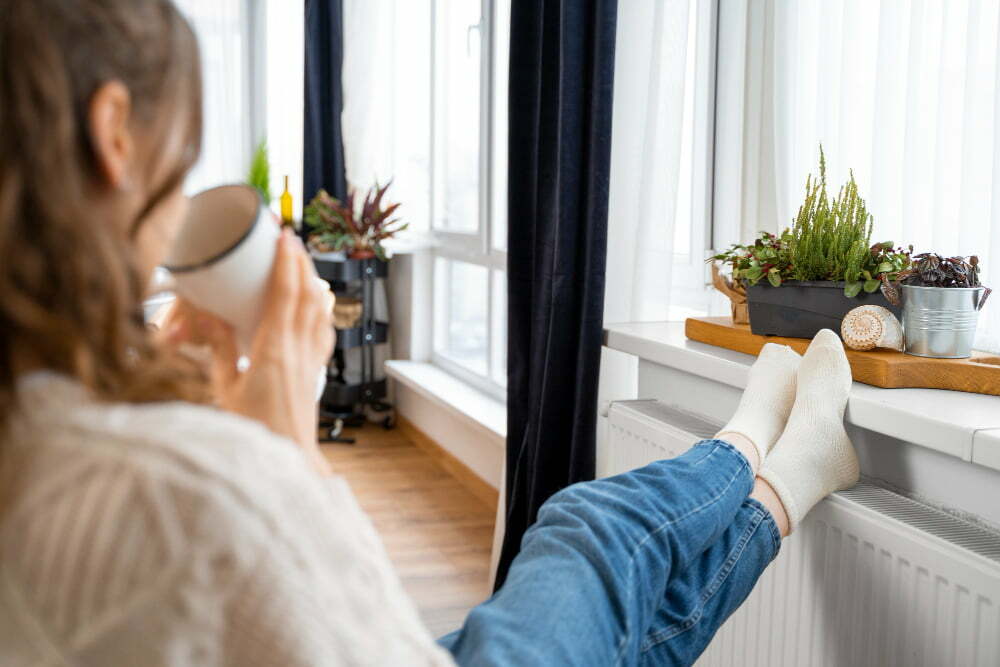
One of the most effective ways to improve indoor air quality is through proper ventilation. Opening windows and doors, using exhaust fans, and investing in an air purifier can all help to circulate fresh air throughout your home.
As I continued my research on household cleaning products, I realized that proper ventilation was often overlooked. Many people assume that simply using a fan or opening a window while cleaning is enough to prevent harmful pollutants from accumulating in their homes.
However, it’s important to note that some cleaning products can release volatile organic compounds (VOCs) into the air for hours after use. These VOCs can cause respiratory irritation and other health issues if not properly ventilated.
So next time you’re planning on doing some deep-cleaning around the house, make sure you have adequate ventilation measures in place. Your lungs will thank you!